|
Between 1936 and 1940, the Federal Writers Project, part of the Works Progress Administration (WPA), visited Tampa to take oral histories from residents. They collected several writings from residents. This particular writing comes from Enrique Pendás, a well-known cigar manufacturer. The narrative below contains his personal feelings regarding the politics of the time and other controversial topics. Some words are illegible, so question marks (?) or suggested words in parentheses are used in their place. I was born in the province of Asturias in the year 1865. The town in which I was born is so small that it does not appear on any map of Spain. I am about as old as Christopher Columbus, who discovered the new world only because of the grit of the Pinzon brothers. Columbus was at a total loss when his compass needle no longer marked a due west course. I went to Cuba when still very young, and was completely amused with the beauty of this land. It has a wonderful fertility, yielding three crops a year, a thing that no other land in the world can equal. And above all is the hospitality of its people who are always obligors and trying to please. Where else can one find these qualities? It is a second nature in them. I do not consider myself only Spaniard, but a Spanish American, as all these republics in South America have the blood of Spain in their veins: they are the true daughters of Spain. We are not Latins, as many in this community would like to call us. We are all Spanish Americans, and there should not be any distinction between us. We are all brothers in blood as well as in characteristics. When I was in New York I had a private teacher, who was one of the most learned men that I have ever had the pleasure of knowing. He could speak and write many languages. I remember saying to him one time that the Spanish language was more expressive than the English, and he told me: "What is there more beautiful than this passage in English: The twittering of the birds, the cooing of the doves." However, he said this with so much expression that it really seemed that you were hearing the birds and the doves. I remember also a friend of mine who was a Socialist. In those days I was mixed up in everything. The day previous to the elections I was with him in a building where there were four speakers talking for him, each speaker in a separate window. It was raining and thundering, but the crowd remained there listening. I remained in the building until early hours of the morning. Then the votes were finally counted; he had received 66,000 votes. Just before establishing our factory in Tampa, I went to Key West and remained there eight months. Our factory, Lozano, Pendas & Co., was finally established here on May 15th, 1887, when I was 22 years of age. I remember that when I established the factory here, I gave employment to nearly all the workers of Sanchez & Haya. I have always treated the cigar-makers as human beings, not as animals. I thoroughly understand their nature. I founded the Centro Español de Tampa (Spanish Club), and although I hold number one as being its first member, I have retired from the club altogether. They have sent committee after committee to get me to go back, but I have principle in my life. The reason for this action of mine, if you must know, is that the Centro Español gave a reception to the former Cuban President, Mr. Ramón Grau San Martín. They acted like dogs that lick the hand that whips them. This president enforced the 50% law in Cuba, whereby 50% of all employees had to be Cubans (native). There are a considerable number of firms owned by Spaniards whose employees are all Spaniards, and this meant that they had to throw out half of their employees and place Cubans in their place. There were also several acts of violence against the Spaniards during the presidency of Mr. Grau. Another thing that the Centro Español did, which is not in keeping with my principles is the following: When the Spanish Ambassador came to Tampa, a reception was held in his honor at El Pasaje Restaurant. The first to speak was the president of the Centro Español. He got up and spoke in English -- very rotten English at that. When the Ambassador was called upon to speak, he also continued speaking in English. Then they called upon me to speak, I got up, grabbed my hat, and sent everybody to H---. Then I walked out. It is unbelievable that a Spanish representative should come to a Spanish colony and have everyone trying to speak a language which they do not know, when they have the most beautiful language in the world at their finger's tip, as you might say. I have my principle: what my reason dictates is right, and I pursue that course to the end, irrespective of the obstacles that stand in my way. When the manufacturers and cigar-makers arrived in Tampa, they found nothing but a stinking hole with swamps and pestilence everywhere. When we first arrived here, what little we found in what was called Tampa, could not even be called a village. We made not only what Tampa is today, but the whole state of Florida. There were only a very few thousand souls in all the State. We gave it life and placed it on the map of the United States. This State owes everything to us. There were no women in Tampa in those days. I would go to Franklin Street, and would stand there hour after hour, but could not see a single woman. Then the beautiful sanitorium of the Centro Asturiano was built, Mr. Torres, then president of the Club, found himself in a complete dilemma with reference to the medical body. He was not equal to the task before him. He fell sick and I took complete charge of the matter. When he recovered I had already organized the hospital. I remember that one of my cigar-makers was Mr. B. M. Balbontín. He was a very bad cigar-maker, but he was a very intelligent man. I took a fancy to him and set him up in a barroom, at which business he made a complete success. Mr. Balbontín has always been a man of great prestige in the Latin community. At one time he came to the rescue of the Spanish Club when it was in financial straite [sic] by putting through the Gold Bonds of the Club, and sold to the members. It became, therefore, an internal debt…only last week I gave a check for $25.00 for this purpose. Mr. D.B. McKay was raised in Ybor City. As a boy he was always among us. He has not forgotten his friends. He attends all the social functions of the different clubs in Ybor City. When he first ran for Mayor of Tampa I was his chief supporter, and I myself placed him as Mayor of Tampa. Peter O. Knight is another one of the "strong men" in Tampa, who visits all the Latin clubs on Christmas Day, and then winds up by visiting me at my home. Every year I make substantial donations to all worthy charitable causes. However, I never give a cent to the Salvation Army or some of those other charities which keep salaried men. When I give my money, I must know that it goes straight to the needy persons, not to somebody's pocket. When the terrible storm (came) that destroyed the entire town of Santa Cruz del Sur, Cuba, I immediately set a movement on foot to (help) those people. I was afterwards offered a certificate in recognition of my act, which I still hold. I also pay the quotas of many members of the Clubs, who are….(unable to pay) I have been in many meetings of the Cuban Club, and very many of the ones attending the meetings are Spaniards. At one of these meetings I brought up the matter of sending a committee from the Cuban Club to the officials in Tampa. Not a single one wanted to go; they were afraid. So I appointed myself the Committee and went there myself. It is absurd to be afraid of voicing your rights before those who came here after we had founded a city. Since the first societies were formed, the doctors here have been carrying on a most brutal war against them, very similar to what the doctors have been doing in Cuba against the quintas. They are nothing but a bunch of shameless rascals. At a meeting I placed my sentiments into words, and told them plainly what I thought of all the doctors. I stated that at least 60% of the people buried in the cemeteries were killed by them. I was afterwards told that Dr. Helms, a very good friend of mine, had taken offense at this statement of mine. (?) At another meeting I went straight up to Dr. Helms, and told him that I took exception with him, as there are exceptions in all cases. When I commit an error with a friend, I promptly rectify it. I am not afraid to go up to him and acknowledge my error. However, my accusation holds good for all the rest of the doctors. When my left arm was broken at the joint, the doctors here said it was a dislocation. They placed the joint back together, but not the broken bones. It commenced giving me pain, and the arm began to swell. I then left for Havana, Cuba, and had the bad luck to go with the president to the Centro Asturiano of Havana to his quinta or sanitorium, La Covadonga. He took me to the best specialist of the sanitorium. This specialist told me that my arm needed massage. I left that place in bad humor, and told that specialist several things. I then met a friend of mine who was not a "big shot", like the president of the Centro Asturiano. He took me to the Colegio de Belén where they had an X-Ray apparatus, and which I believe was the only one in Havana. At that time the X-Ray had not been perfected. There was not a single one in Tampa. Although this X-Ray at the Colegio de Belén was not a very powerful one, yet it showed clearly that the bone was broken. I took this X-Ray photo to that specialist of the Centro Asturiano, and showed it to him. He then said it clearly showed that the bone was broken, and it was necessary to operate and place the bone back together. I told him that it certainly needed an operation, but he was not the one that was going to operate on me. I also told him that the arm was worth more than he and the whole sanitorium. My friend then took me to another doctor who operated on me. As soon as my wife knew that I had to undergo an operation, she promptly left for Havana. Half an hour after the boat docked, she was at my bedside. While in Havana I saw a very strange happening, and it was this: A full-blooded Spaniard had come to Cuba when very young. He married a Cuban girl. He raised a family of eight children, all born in Cuba. One day he arrived at his home feeling very (sad) as he had lost his position. He was talking to his wife of how bad conditions were getting, when his eldest son got up and said: "Gallego, go back to Spain where you belong; we don't want you in Cuba." The father gave his son such a terrible blow that he had to be carried to the Emergency Hospital. A few hours later the father was on a ship bound for Spain, leaving the whole family behind. During one of the strikes here in Tampa, I went back to my hometown in Spain, thinking of seeing all my old friends and relatives. When I arrived there I found that I knew no one. There was an entirely new generation. The only one that I recognized was my sister. I remember that upon my return, an old mulatto man who had been working at my factory for many years, died. I attired myself in a tight fitting coat, and a tall top hat. It makes me laugh to think of how I was dressed when I went to this funeral. In these days I was alone here, without my family to look after or anything, so you can be sure that I wasn't too good. I did as I pleased. The Union of Manufacturers here is composed of pirates of the industry. They are not human; they can only think of new ways of (?) the cigar-makers more and more. All the rules and regulations are antiquated. Regensburg (Cigar Factory) is not one of them; we only cooperate with them. At one time certain rumors got about that I had said something about one of the manufacturers. This was completely false, and it made me see red. At one of the Manufacturer's meetings, I got up, and very loudly said that whoever had said such a thing about me was un apestoso hijo de perra, or if you would prefer to have it in English: A stinking son of a bitch. No one got up to contest this. Of Mr. Davis of Schwab, Davis & Co., I can't say much. It is best to ignore him altogether. He wanted to have the cigar-makers produce the Panetellas at $13.00 per thousand and thought he could do it by threatening them. How little he knows the nature of the cigar-makers! I told him that he could sooner kill the cigar-makers of hunger, before they would submit to any threat. Most of the strikes in Tampa had been originated by the "International." In the first strike that started on June 25th, 1910, the cigar-makers demanded the recognition of the International. I headed the manufacturers in the strike, which lasted seven months. This strike was finally ended on January 26th, 1911, and although the cigar-makers lost, they still had hopes of forcing recognition. On April 20, 1920, the cigar-makers again went on strike, demanding recognition of the Union. This strike lasted ten months, and I completely destroyed the "International" for all times. Another one of the things that was causing many of the strikes in Tampa was the tribunes. I advised the manufacturers to take out the tribunes and there would be no more strikes. These tribunes were entirely eliminated from the factories through my efforts. The tribunes at the cigar factories were the platforms where the readers stood and read novels, newspapers, etc., to the cigar-makers. In some instances the cigar-makers would stand here and voice their grievances. The cigar making machines are ruining not only the cigar-makers, but the manufacturers as well. The factories must compete with other factories in the country. This competition is ruinous. They are even producing a very large size of cigar to retail at two for 6 cents. Then some are producing a really small cigar in imitation of the cigarettes. The cigarettes are also doing a great deal of harm to the cigar industry. Their production has jumped by leaps and bounds since the war. They are harmful because they have too much nicotine and opium, yet you see little kids about the streets smoking cigarettes. At one time the factory of Regensburg alone was producing over eighty million cigars in one year. Today this former production is only a pleasant memory. The young generation is gradually leaving Tampa. Some are leaving for New Orleans where they are not wanted. There are four factories there that are doing good business. Others are leaving for New York, Philadelphia, New Jersey, and other parts. Only last week over 60 persons left Tampa. A remedy should be found that will remedy this condition. I do not intend to leave, however, for I have lived here practically all my life and I intend to die with the cigar industry in Tampa. Of the very first settlers most of them are today in their graves, and that is the only place where I could go to see them. Only yesterday I went to the Myrtle Hill Cemetery to attend the transfer of the ashes of an old friend of mine. Only three or four of the real old-timers are left living today. Note: Enrique Pendás died on December 31, 1935, in Tampa at the age of 70. All the cigar factories in Tampa closed the morning of his funeral to honor him. The hands of the large clock on the Regensburg factory were stopped at 3:25 A.M., the time of Pendás death the day before. This manuscript was provided by the Library of Congress, Manuscript Division, WPA Federal Writers’ Project About Enrique Pendás Enrique Pendás was born in Asturias, Spain, in 1865. At age 16, he left his homeland for Cuba, where he lived for two years; then, he went to New York, where he worked with his uncle Y. Pendás of Lozano, Pendás Cigar Co. In 1887, the company decided to open a factory in Tampa and sent Enrique to set up its operation. This was a year after the cigar industry started in Ybor City. Enrique became manager of Lozano, Pendás and Co., the third cigar factory established in our cigar city. He remained as manager through the firm's reorganization, which became Y. Pendás and Alvarez until 1914. Two years later, he became manager of the American Cigar Co. factories in Tampa. In 1929, after the death of Laureano Torres, Sr., he became manager of the Regensburg Cigar Factory. He helped to found El Porvenir (The Future), a health maintenance organization for cigar workers. The members paid $1.25 monthly and received medicine, hospitalization, and medical services. El Porvenir worked exceptionally well, and later, the various nationalities branched off to form their own mutual aid societies–El Centro Español, L’Unione Italiana, Martí-Maceo, El Círculo Cubano and El Centro Asturiano. El Centro Español was formed in 1891 and was funded by Ignacio Haya, one of the owners of Sanchez and Haya Cigar Factory. He was elected its first president, and Pendás served as vice-president. CIGAR CITY MAGAZINE- MARCH/APRIL 2007 Art & Photography Contributors: Hillsborough County Public Library, Tampa Bay History Center, The Florida State Archives, The Tampa Tribune/Tampa Bay Times, University of South Florida Department of Special Collections, Ybor City Museum Society, private collections and/or writer. MARILYN L. FIGUEREDOMarilyn was Cigar City Magazine's co-owner and managing editor until her passing in 2007. Marilyn was born in 1948 in Tampa, where she lived her entire life and, more specifically, her early childhood in Ybor City. After a successful 30-year career at Delta Air Lines, Marilyn embarked on what became her true passion: reinvigorating the colorful, multicultural history of Ybor City through the lives and personal stories of the families and individuals who made up the uniqueness of this Tampa quarter. She did this primarily through Cigar City Magazine, serving on various committees and organizations, and attending cultural events throughout Tampa. Her work alongside her niece Lisa Figueredo, founder and Publisher, was instrumental in producing Cigar City Magazine. Marilyn's legacy will live forever throughout the pages of Tampa's first historical magazine–CigarCityMagazine FOLLOW CIGAR CITY MAGAZINE
0 Comments
Your comment will be posted after it is approved.
Leave a Reply. |
Archives
June 2013
Categories
All
|
Cigar City is a Florida trademark and cannot be used without the written permission of its owner. Please contact [email protected]
© 2021 Cigar City Magazine. ALL RIGHTS RESERVED.
© 2021 Cigar City Magazine. ALL RIGHTS RESERVED.

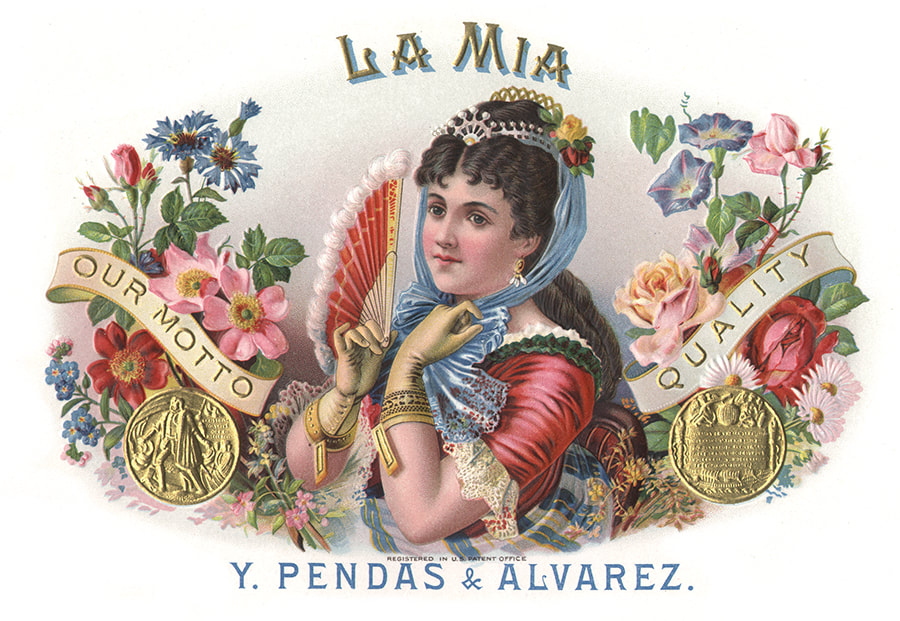

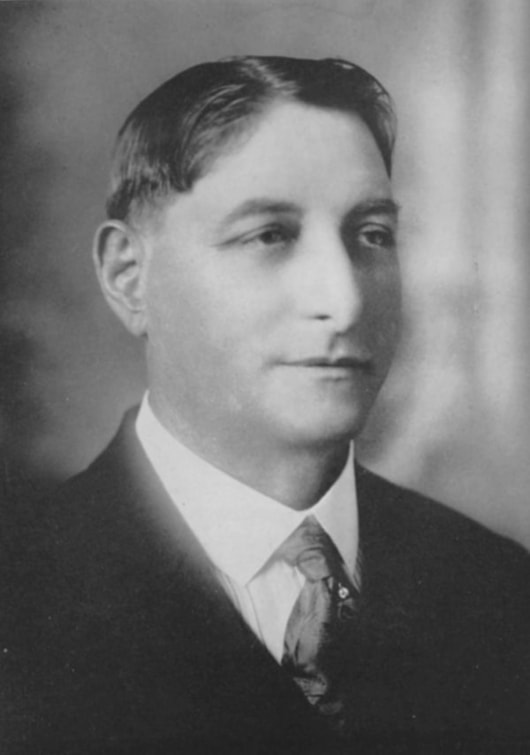
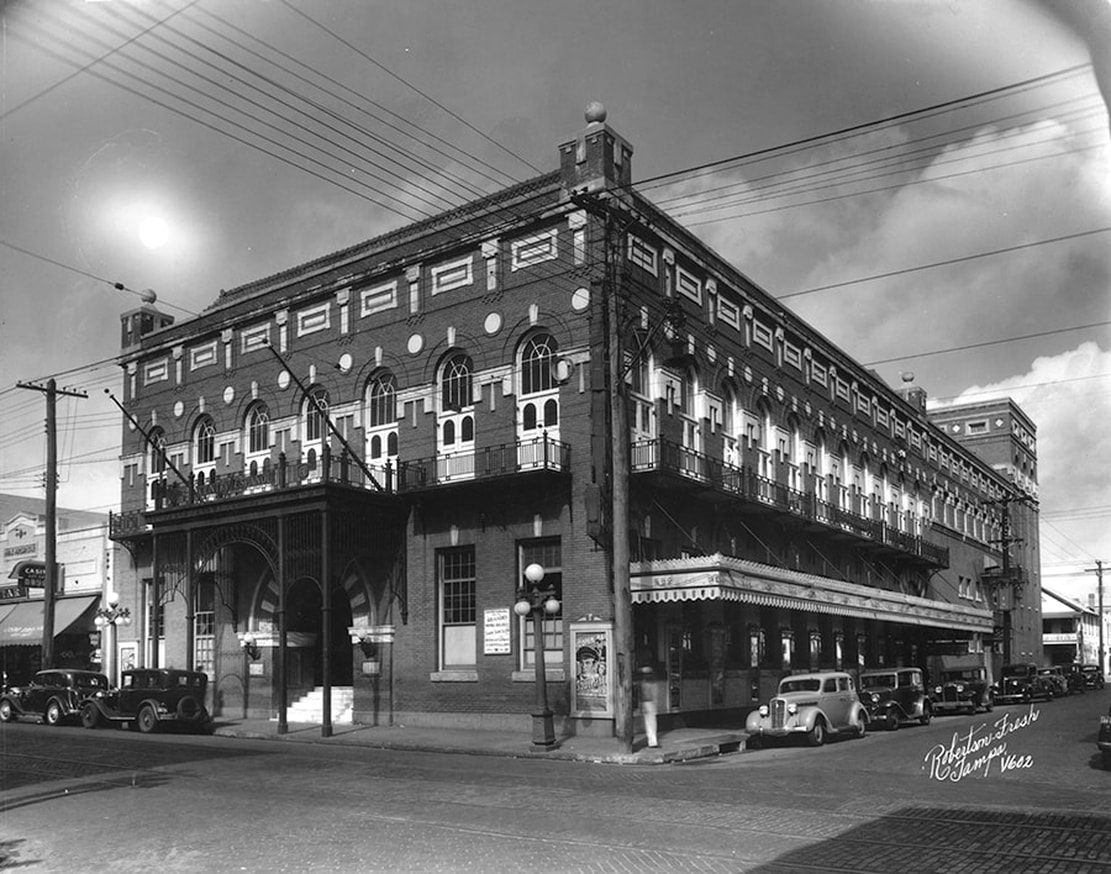

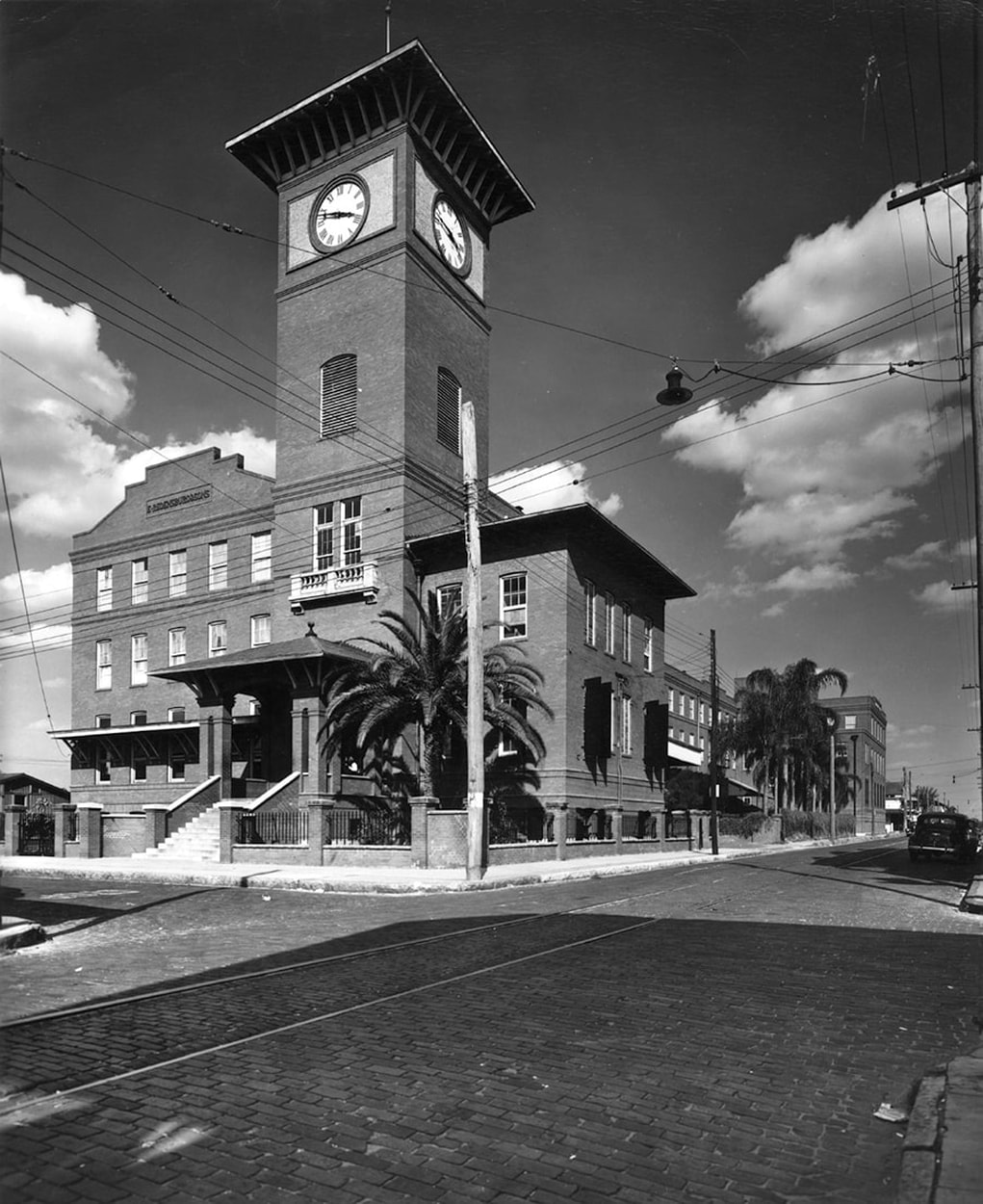
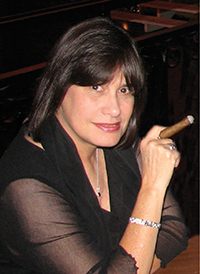
 RSS Feed
RSS Feed